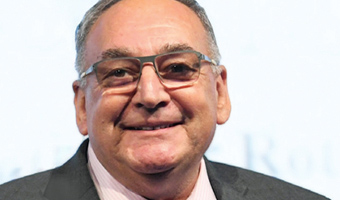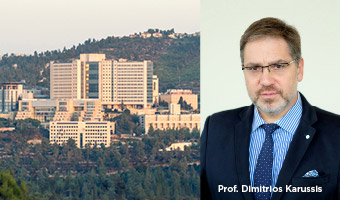In March, within hours after the terrorist attacks in Brussels, landmarks around the globe — including the Eiffel Tower, Brandenburg Gate, Trevi Fountain and the World Trade Center — were bathed in lights showing the red, yellow and black of the Belgian flag. Belgian colors likewise adorned hundreds of thousands, if not millions, of Facebook pages — much as the French tricolour appeared after the Paris attacks last November.
My heart goes out to the families of the victims and to the people of Belgium — a nation that is one of the pillars of European unity, stability and democracy.
Political leaders, media and the informed public routinely, unambiguously and rightly condemn terrorist attacks against American, Belgian, French, Danish, or Indonesian targets.
But when it comes to terrorism, not all victims are equal.
Since October 2015, 30 Israelis have been murdered in a wave of premeditated knife attacks, and another 21 were injured in Monday's bombing of a bus in Jerusalem. Israelis today are on constant alert as they conduct their daily lives — working, going to school, grocery shopping, waiting for a bus or walking down the street. Parents have been murdered with knives or hatchets in front of their children. Attack victims have included pregnant women, teenagers and toddlers.
When an attack takes place in Jerusalem or Tel Aviv, there is often a deafening silence from the world, an effort to conflate the killing of Israelis — mostly civilians — with a broader "cycle of violence" or, at worse, a pivot to suggest that Israel bears responsibility. These are textbook cases of blaming the victim.
This double standard is often reflected in news reporting. A typical recent headline (from The New York Times) read, "Terrorists Kill Dozens in Brussels." Last December, the Los Angeles Times failed to note that two of the Palestinians referred to in the following headline — "Four Palestinian Teens Killed in Israeli Violence" — were killed as they carried out stabbing attacks against Israelis and that the other two died in a violent demonstration on the Gaza-Israel border. [The headline was later updated to "Violence in Jerusalem, Gaza leaves 6 dead, including stabbing suspects."]
Israel has seen attacks on civilians take the form of airline hijackings, suicide bombings, cross-border raids and the murder of its Olympic athletes. It has been the victim of large-scale attacks and now the protracted wave of knifings. Proportional to the country's population, those 30 Israeli fatalities over the past six months are the equivalent of 1,200 American lives.
Many American political leaders have expressed solidarity and spoken out for Israel's right to defend its citizens from attack. Vice President Joe Biden's recent expressions of U.S. sympathy for the victims and support for Israel have been especially forceful and eloquent. But where is the global sense of outrage?
Just as Israel is often deemed uniquely qualified for criticism over exercising self-defense, it also appears to be uniquely unworthy of outrage in the face of terror attacks. But no person or nation's position against terror can stand scrutiny if it excludes one country — explicitly or by omission.
The cruel irony is that many countries have been able to improve security — from airport screening to intelligence gathering to the functioning of hospital trauma centers — by relying on Israeli experience and expertise.
The people of Israel need our help. The United States must lead the international community, calling on political leaders of all nations that purport to fight terrorism to speak out loudly against attacks on its citizens, and to pressure Palestinian leaders to do all they can to stop the targeting of Jews for murder.
I urge all who read this message, in any city or nation, to insist that your leaders and local media give the same consideration to Israeli terror victims that they would give to victims in your own community, or in any country other than Israel.
I issue this call as someone who has seen the carnage firsthand. Hadassah's two hospitals in Jerusalem — hospitals renowned for treating all patients alike — have treated more than 175 victims, including four from Monday's attack, as well as many of the perpetrators during the six-month wave of brutal attacks from knives, guns, hatchets and cars.
If our hospitals can practice nondiscrimination toward people who seek to do us harm, the world can act the same way to support people in harm's way. Discrimination is odious when it denies people their right to life — or the recognition of our common humanity — based on race, nationality or religion. It's time for the world to understand that Israeli lives matter.









